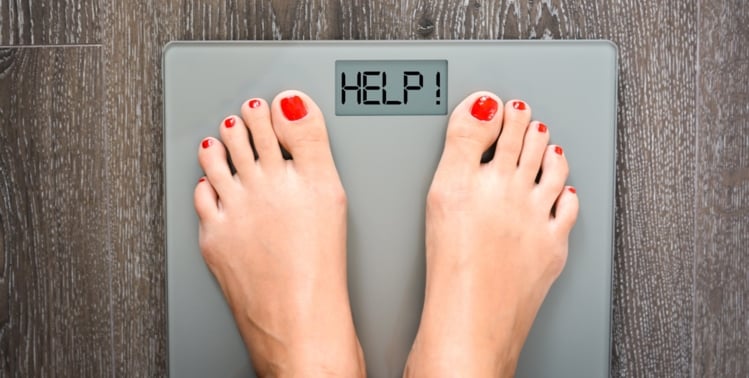Many people complain about feeling bloated or gaining weight before and during their period. What are the physiological reasons for this period-related weight gain, and what can be done about it? This article will explore the reasons why you might experience weight gain before your period and ways to address period weight gain.
-
Tracking cycle
-
Getting pregnant
-
Pregnancy
-
Help Center
-
Flo for Partners
-
Anonymous Mode
-
Flo app reviews
-
Flo Premium New
-
Secret Chats New
-
Symptom Checker New
-
Your cycle
-
Health 360°
-
Getting pregnant
-
Pregnancy
-
Being a mom
-
LGBTQ+
-
Quizzes
-
Ovulation calculator
-
hCG calculator
-
Pregnancy test calculator
-
Menstrual cycle calculator
-
Period calculator
-
Implantation calculator
-
Pregnancy weeks to months calculator
-
Pregnancy due date calculator
-
IVF and FET due date calculator
-
Due date calculator by ultrasound
-
Medical Affairs
-
Science & Research
-
Pass It On Project New
-
Privacy Portal
-
Press Center
-
Flo Accuracy
-
Careers
-
Contact Us
Weight Gain Before and During Your Period: Are They Connected?


Every piece of content at Flo Health adheres to the highest editorial standards for language, style, and medical accuracy. To learn what we do to deliver the best health and lifestyle insights to you, check out our content review principles.
Weight gain before your period
Do you gain weight before your period and want to know why? Let’s take a look at the reasons why people often gain weight before their period and what you can do to manage it.
Take a quiz

Causes of PMS weight gain
According to the US Department of Health and Human Services Office of Women’s Health, up to 90 percent of women report having premenstrual symptoms of bloating, headaches, and moodiness. Weight gain before your period is also referred to as PMS weight gain. This weight gain is related to hormonal changes that occur in the luteal phase, which is the phase just before you get your period.
The luteal phase is the second phase of your menstrual cycle. It begins right after ovulation and ends when your period starts.
Researchers aren’t entirely sure what causes the symptoms associated with premenstrual syndrome (PMS). Some of the most popular explanations include:
- Cyclic changes in your sex hormones
- Pituitary hormone fluctuations
- Prostaglandin level changes
- Cyclic changes of certain brain chemicals, including neurotransmitters like serotonin
The most common symptoms of PMS are mood swings, bloating, fatigue, hot flashes, and headaches.
These behavioral and physical symptoms can be mild to quite severe and can interfere with everyday life.
Some people who experience weight gain before their period also report that their breasts get slightly larger and more tender. Some experience constipation, while others crave certain foods. These cravings are often for sweet, salty, or high-fat foods, but unfortunately, these types of unhealthy foods can actually make your PMS symptoms worse.
It’s normal to gain three to five pounds before your period, and this weight gain usually goes away a few days after your period starts.
Take a quiz
Find out what you can do with our Health Assistant

How to manage weight gain before your period
Have you ever had cravings for certain types of food just before your period? Although you may be craving comfort foods, some unhealthy options can lead to period weight gain. Try to cut back or avoid these less-healthy options before and during your period:
- Salty foods
- Caffeine
- Sugar
- Alcohol
- Fatty foods
Two things that might be able to help with PMS symptoms are exercising and drinking more water. It might seem counterintuitive, but increased water intake is one of the best things you can do to avoid feeling bloated and reduce the likelihood of weight gain before your period.

Weight gain during your period
Weight gain during your period isn’t as common as weight gain before your period. Once your body realizes you aren’t pregnant, your hormone levels change again. This drop in estrogen and progesterone triggers the body to shed the lining of the uterus, and menstruation begins.
When does period weight gain go away?
This shift in hormone levels may also cause an increase in water retention before your period starts. That’s why most people who experience PMS weight gain return to their normal weight once they get their period.
Period weight gain treatment
The most useful things you can do to alleviate period weight gain from fluid retention are to avoid certain foods, continue to exercise, and drink plenty of water. Here are some additional options:
- Magnesium and calcium supplements — Magnesium and/or calcium supplements may help alleviate fluid retention caused by your menstrual cycle. A recent study found that low calcium and magnesium levels during the luteal phase lead to more severe PMS symptoms, including weight gain and bloating associated with fluid retention. Always talk to your health care provider before starting any new medication, including supplements, as they can interact with other medications that you may already be taking.
- Diuretics — Diuretics draw fluid (water) from the body and cause increased urination. You should only take diuretics if prescribed by a health care provider.
If you experience monthly weight gain despite making these changes, you may want to consult your health care provider. They may ask you to keep a symptom diary and suggest alternative options.



Hey, I'm Anique
I started using Flo app to track my period and ovulation because we wanted to have a baby.


The Flo app helped me learn about my body and spot ovulation signs during our conception journey.


I vividly
remember the day
that we switched
Flo into
Pregnancy Mode — it was
such a special
moment.
Real stories, real results
Learn how the Flo app became an amazing cheerleader for us on our conception journey.
References
Hicks, Courtenay S, et al. “A Comparison of Body Composition Across Two Phases of the Menstrual Cycle Utilizing Dual-Energy X-Ray Absorptiometry, Air Displacement Plethysmography, and Bioelectrical Impedance Analysis.” International Journal of Exercise Science, Berkeley Electronic Press, 1 Dec. 2017, www.ncbi.nlm.nih.gov/pmc/articles/PMC5786198/.
Mayo Clinic Staff. “Premenstrual Water Retention: How to Get Relief.” Mayo Clinic, Mayo Foundation for Medical Education and Research, 3 Oct. 2019, www.mayoclinic.org/healthy-lifestyle/womens-health/in-depth/water-retention/art-20044983.
Cheuvront, Samuel N, et al. “Physiologic Basis for Understanding Quantitative Dehydration Assessment.” OUP Academic, Oxford University Press, 30 Jan. 2013, academic.oup.com/ajcn/article/97/3/455/4571504.
“Premenstrual Syndrome (PMS).” ACOG, www.acog.org/Patients/FAQs/Premenstrual-Syndrome-PMS.
Harvard Health Publishing. “Premenstrual Syndrome (PMS).” Harvard Health, Jan. 2019, www.health.harvard.edu/a_to_z/premenstrual-syndrome-pms-a-to-z.




